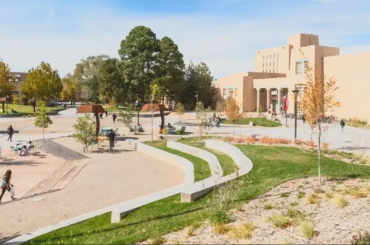Indiscriminate Compassion
“They’ve stopped responding,” he said exasperated.
I knew that frustration and that sadness.
“Who?” I asked. But I feared I already knew the answer.
“The paramedics.”
In the small town where I’ve landed in Eastern Tennessee, our church community is actively involved in recovery ministry. One afternoon, the program director, Matt Holder, called me to share something about a mobile home park 5 miles outside our town limits.
This particular mobile home park earned a reputation amongst first responders for overdose-related distress calls. So much so that a supervisor recently decided to instruct the responders to stop attending to their calls.
Which is why Matt took it upon himself to respond.
Others quickly followed. They would load up volunteers into a couple vans, stock up on naloxone (the life-saving opioid overdose reversal medication), and go door to door at the mobile home park offering both help and relationship. You’d be surprised how far simple conversation can go; the team was a comfort source for these people who were hurting and frustrated from systemic effects of stigma.
Many residents were past the point of simply internalizing feelings like shame and worthlessness; the shame was also externalized through the way they were denied life-saving support structures.
Addiction stigma can literally kill.
The depressing reality is that many people lose their lives because they lose the opportunity for recovery because of stigmatizing beliefs and attitudes turned into harmful policies.
I’ll never forget what the pastor’s wife said to Matt after hearing about their goal to reestablish recovery opportunities in this neglected community:
“This is the kind of work Jesus would do.”
It wasn’t flashy. No social media posts capturing the exchanges between people. Merely a rag-tag bunch of folks loaded into a couple of old vans passing out medication. Their motivation was simply spreading the life-saving power of being loved and appreciated. A practicing of presence for a community that felt neglected. The ministry became one of only pillars of the local community through whom these people could receive tangible hospitality void of judgement or condemnation.
The author and priest in recovery, Brennan Manning, shared this in his final book:
This vulgar grace is indiscriminate compassion. It works without asking anything of us. It’s not cheap. It’s free, and as such will always be a banana peel for the Orthodox foot and a fairy tale for the grown-up sensibility. Grace is sufficient even though we huff and puff with all our might to try to find something or someone it cannot cover. Grace is enough. He is enough. Jesus is enough.1
When we are made to feel like the place for us is over there, not in here; when we have a seat in the parking lot, but not at the table; when we are led to feel unworthy of help, unworthy of life itself, then I believe we are doing incredible harm not only to ourselves but to our communities.
“Grace is sufficient even though we huff and puff with all our might to try to find something or someone it cannot cover.”
As Jesus himself has scandalously been caught saying: “Let he who is without sin cast the first stone.”
Grace isn’t merely a gift received; it’s a blessing we share with others. Grace moves and breathes life into a hurting world. And what’s so amazing is that we’re enabled to carry out this “indiscriminate compassion” alongside Jesus.
We have no stones that can be cast around where I live, where we live. Only naloxone to pass out.
Grace isn’t merely a gift received; it’s a blessing we share with others. Grace moves and breathes life into a hurting world. Honored to share this reflection today with The Remarkable Ordinary about my friends in Eastern Tennessee. –







